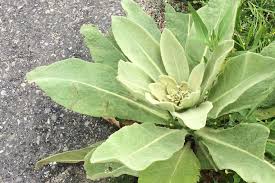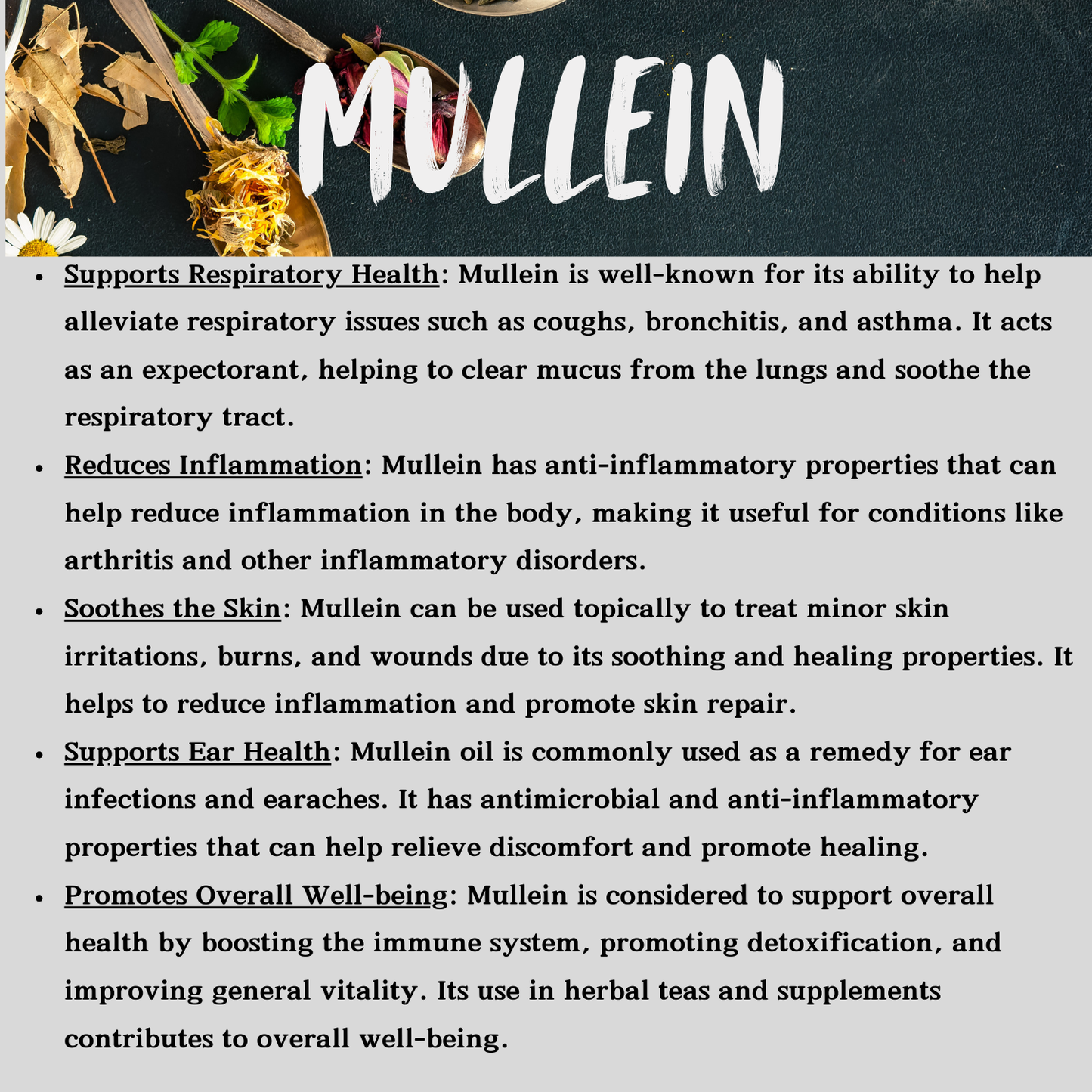Delights By The Pound
Mullein
Mullein
Couldn't load pickup availability
Mullein is a versatile herb known for its soft, fuzzy leaves and towering flower stalks, widely used in herbal medicine primarily for its benefits to the respiratory system. Here’s how to use mullein in teas and tinctures:
In Teas:
- Leaf Tea: Steep about one to two teaspoons of dried mullein leaves or flowers in a cup of boiling water for 10 to 15 minutes. This tea has a mild, somewhat earthy flavor and is acclaimed for its ability to soothe the throat, reduce inflammation, and ease respiratory conditions.
- Herbal Mixtures: Mullein can be combined with other respiratory herbs like eucalyptus, peppermint, or thyme to enhance its lung-supporting effects. These blends are particularly useful during cold and flu season or for those with chronic respiratory issues.
In Tinctures:
- Alcohol Extraction: Fill a jar one-third full with dried mullein leaves or flowers, then cover completely with high-proof alcohol (like vodka or brandy) to extract the active components. Seal the jar and place it in a cool, dark area, shaking it daily for about 4 to 6 weeks. After the steeping period, strain out the plant material. The resulting tincture can be used in small doses (a few drops in water or tea) to help support respiratory health, alleviate coughs, and reduce inflammation.
- Glycerin Tincture: If alcohol is not an option, a glycerin tincture serves as an excellent alternative. Follow the same method as the alcohol extraction, but use vegetable glycerin instead. This tincture will be sweeter and is suitable for those who prefer not to consume alcohol.
Mullein tea is particularly beneficial for those with bronchial issues, as it can help to clear congestion and soothe irritated mucous membranes. The tincture offers a more concentrated form, convenient for more targeted therapeutic use. It’s important to start with small amounts to see how your body reacts, especially since mullein is generally mild but should be strained properly to remove any fine hairs that might irritate the throat. Consulting with a healthcare provider is also wise, particularly if you are using other medications or have serious health concerns.
Share


Already made tincture and I CAN BREATH

